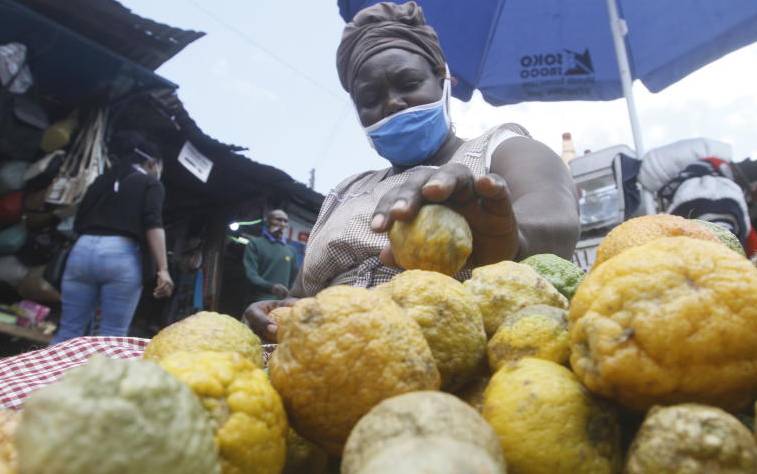×
The Standard e-Paper
Join Thousands Daily

Judy Mwikali sells her lemons at Bus Station, Nairobi. Before she could buy a sack for Sh1,000 but now she buys it for Sh5,000 which she sells 3 pieces for 50 bob and 5 pieces for 100 bob now. This is up from Sh 20 for 4-5 pieces. The demand is high because it is believed that lemons have Vitamin C which is crucial for building body immunity. [Jenipher Wachie, Standard]
Have you noticed that the price of lemons has gone up? They are no longer the five-shilling fruits that vendors would beg people on the streets to buy.